Christchurch and 'social cracks'
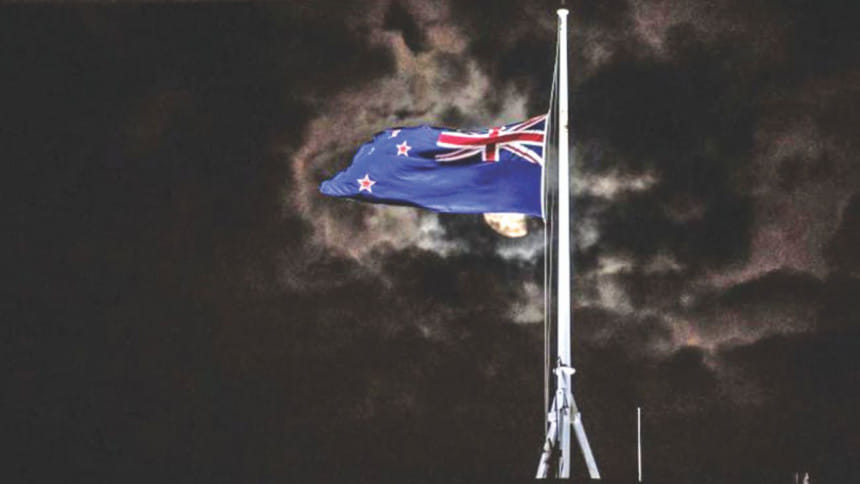
It was not, as Prime Minister Jacinda Ardern noted, "one of the darkest days," in New Zealand's history, but "the darkest". New Zealand is not known for "dark" behaviour, but 3/15 became "one of the darkest" days of the 21st century globally. Well-tracked Muslim jihadi goons have typically perpetuated them, but with Christian "lone-wolf" supremacists emerging from "society's cracks" to join them, the mainstream public must now stand up and be counted alongside intelligence agencies to prevent "copy-cat" episodes.
At stake is Brenton Tarrant's driving force. The Australian's 74-page ranting might be dubbed his "Mein Kampf" ("My Struggle"), echoing the same wrath Adolf Hitler propagated in the infamous original version of the same title. Put simply, it is "invasion"-related. For Hitler, it was directed against the economically more prosperous Jews across Germany particularly, but Europe generally; for Tarrant, it was the dark-skinned immigrants to Europe, particularly those unassimilated masses, like those he saw recently in the outskirts of Paris, mostly Muslims. His posted treatise and horror-reeking live-streaming became tools to project the "white cause," with him as the Christian crusade commander "fighting the good fight with all his might," in hymnic spirit.
That his was not the first time "invasion" was invoked by Christians against Muslims helps us understand the larger context better. Tarrant even helps sketch that big picture. His references to the Christian-Islam battles across Europe, such as at Tours in 732, Lepanto 1571, and Vienna 1683, among others, gave him both the model, and from the Tours campaign, a Frankish leader, Charles Martel, as idol. Noted historian, Edward Gibbon, elevated Martel as "the savior of Christendom" at Tours. If Abd-ar-Rahman al-Ghafiqi's armies had prevailed, after conquering Spain, Gibbon contended "the interpretation of the Koran would now be taught in the schools of Oxford," even more emphatically, "her pulpits might demonstrate to a circumcised people the sanctity and truth of the revelation of Mahomet (sic)" (from his History of the Decline and Fall of the Roman Empire, 1776). Such an image hardened in Tarrant's mind.
It was not the only one, as he explains. Education played an enormous part—that is, the dimming effect of it for white, western youths, like him. By making alternate explanations readily available, even if in distorted forms, education softens die-hard interpretations and impressions to varying degrees. Yet the bedrock intellectual catalyst of the modern age is eroding. The 17th century English Enlightenment, the late 18th century French philosophes, and the very late 19th century German surge to find a "spot under the intellectual sun" must now confront global rivals. China, for example, accounts for more than 20 percent of all scientific publications and more researchers than the United States (Chris Parr's June 2016 article in World Economic Forum site), making intellectual property rights the Rubicon in trade talks.
One handmaiden of the English Enlightenment, the Industrial Revolution, which distinguishes developed from less developed countries today, is also depicting growing global contours. After World War II, the western world accounted for more than two-thirds of the world's gross domestic product (GDP), by the 1990s barely half, and today, less than one-third, with China and the United States flip-flopping their share of the global economy, the latter from 25 percent in the 1980s to 15 percent today, and China spiralling up from 2 percent then to 17 percent today. For white western college students like Tarrant, had he not dropped out, these developments threaten the cardinal assumption of automatic post-graduation employment, together with all the privileges of a post-industrial society, like a social safety network. It does not take knowledge of rocket-science to deduce how anti-foreigner sentiments can be fanned by those unwilling to strive like their less-endowed and less-complacent Asian counterparts, particularly migrants disinterested in assimilating.
No one understood this better than Tarrant. No one understands that better than other nondescript or unengaged students, a galloping proportion of western societies today against its trickle-sized presence half a century ago. This dissatisfied western population is the fearful time-bomb capable of rivalling Islamic jihadis in how macabre their heinous actions can be.
What compounds this cocktail is not just the waning of the intellectual western clout, but also the growth of a facilitative instrument: technology. Paradoxically, it was the slipping of technological competitiveness of the first two industrial revolutions (based on textiles, steel, mass-production), that unwittingly fed this "invasion"-mindset, like the outcry against low-cost Asian or Latin exports. Yet the third and fourth industrial revolutions (computers and artificial knowledge) might have given "invasion"-minded western youths the very revival instrument they seek: Internet-driven social media. It has empowered them enormously to believe their eroding competitiveness can be salvaged. Driven by affluence-triggered complacency into "social cracks", they now see escape outlets. Previously, under the transparent vigil of a democratic order, it was hard, if not impossible, for "invasion"-minded subscribers to mobilise. Now they know they have an applauding, and hopefully growing, audience, waiting in the wings.
We notice that in recent western elections, three of the most illustrious (and original) democratic countries were dented, perhaps irrevocably: Donald Trump's election emboldened the Ku Klux Klan's election meddling, not to mention revive white supremacists, as in the 2017 Charlottesville riots; in France a formidable 2017 Marie Le Pen charge to enter the Champs Élysées was averted; and, of course, the world's first industrialising country, therefore, first free-trade champion, took the first decisively inward turn with the 2016 Brexit referendum.
These, in turn, should alert us how the "invasion"-minded flock may be bristling inside those "social cracks", grabbing any opportunity, like a Charlotteseville-type event, to spring out, or simply dive off the deep-end through "copy-cat" actions. It is why only a vigilant public, informed, if not of the past, then crucially, of the present, must rise to the occasion. Their vital task would be to prevent any more "dark" plunges by keeping a wary eye on the democratic process. With a boom in democratically-elected populists across the west, the rest of the world stands with bated breath as to the uncharted waters that may have to be crossed.
That is not hyperbole. Hitler became a decision-maker democratically in 1932. Though without an absolute majority, he manipulated all power-levers. By March 1933, his Enabling Act placed Germany right in the palm of his murderous hands. Brutal history followed, but the sagacious leadership of Konrad Adenauer, Helmut Schmidt, Helmut Kohl, Angela Merkel, among others, restored German pride, and Europe's automatic decision-maker at crucial crossroads.
Merkel's chancellorship might become Europe's buck-stopper amid the current downward spiral. Her 2021 retirement decision was partly influenced by "invasion" forces, after she stood up, alone across Europe, to embrace petrified Syrian refugees, or, in Tarrant's language, "invaders," much like Ardern gallantly did after 3/15. Preserving Merkel's rock-solid leadership stands between continued US influence and Europe regressing to its war-scarred past. Enough waters have flown under trans-Atlantic bridges to shift Europe's leadership mantle towards Germany. How it delivers will be pivotal, but one useful global ripple would condemn New Zealand's "darkest" hour to where it now belongs: in history, not a future predicament.
Having entered the "global heart" through her election victory, then giving birth in office, Ardern's next baby must be a Newer Zealand, one hopefully as "compassionate" as the old.
Imtiaz A Hussain is the head of Global Studies & Governance Program at Independent University, Bangladesh (IUB).
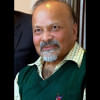


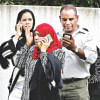
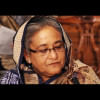
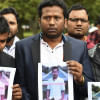
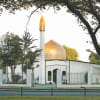


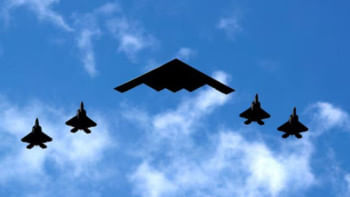
Comments